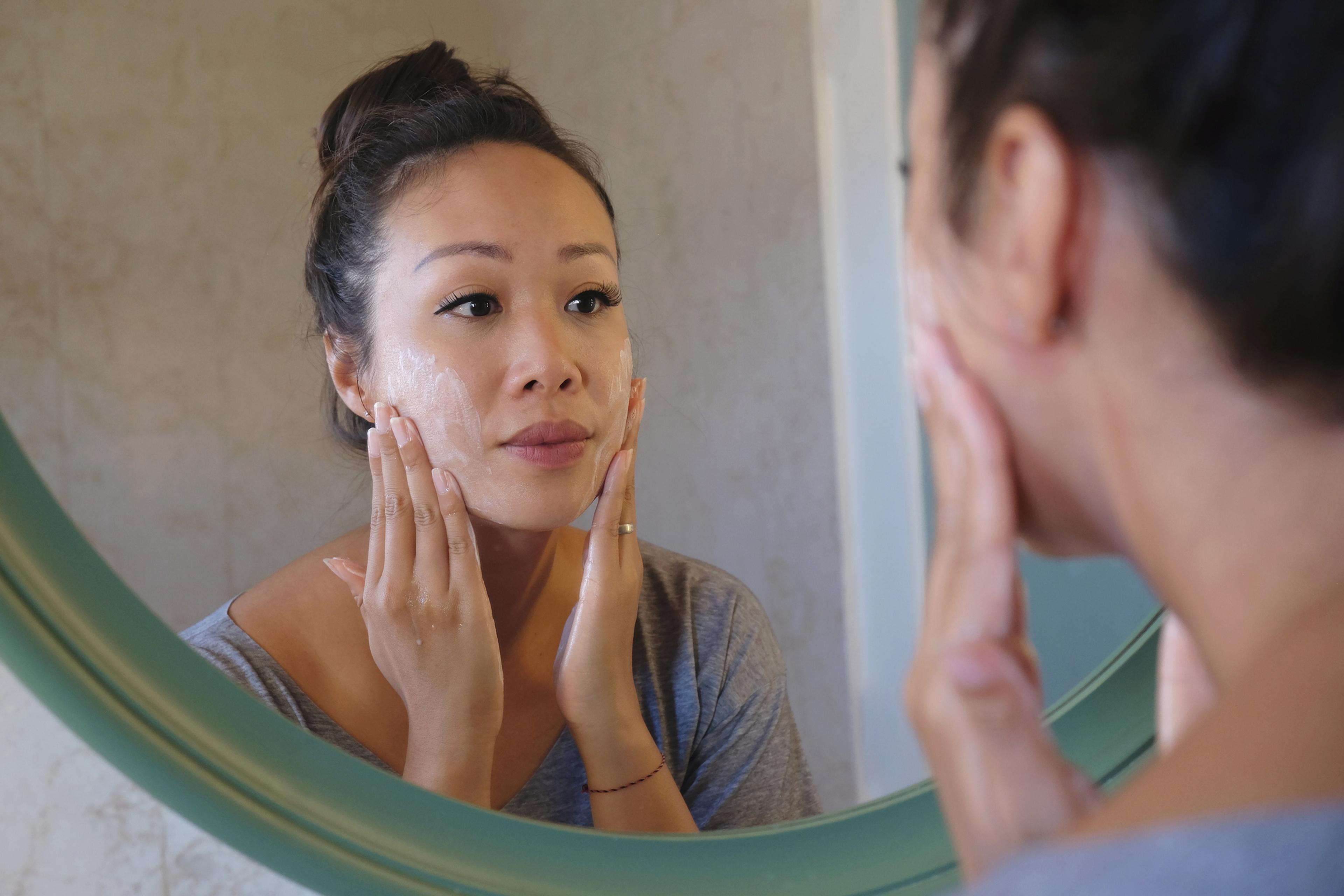5 Things I'd Never Do for my Skin
Jake Newby
| 3 min read

In the age of the social media influencer, it’s never been easier to find step-by-step skin care advice from anyone with a phone, an armful of household products and some conviction in their voice.
The health of your skin shouldn’t be taken for granted, considering skin cancer is the most common cancer in the United States. It also shouldn’t be left in the hands of non-experts. As the largest organ of our body, the skin protects the body and plays a crucial role in regulating its temperature.
Avoid advice from questionable sources and instead check out this list of skin care dos and don’ts from board-certified dermatologist David Baird, a Blue Cross Blue Shield of Michigan (BCBSM) physician consultant.
I would never blindly follow a DIY skincare routine found on social media.
You are doing a disservice to yourself by mixing different products and even foods together and applying them to your skin. Nothing you can do yourself at home is going to be safer or more effective than the products made by personal care company scientists. At best, your DIY concoction will be ineffective. At worst, it could damage your skin.
Furthermore, following the latest TikTok or Facebook skin care trend is almost never a good idea. For example, one recurring trend is to apply lemons to the face. Lemons contain citric acid, which is a type of alpha hydroxy acid (AHA). AHAs can cause skin irritation and worsen certain skin conditions. Remember that everyone’s skin characteristics are different. You shouldn’t copy someone else’s routine because they might not have the same pigmentation, skin texture, or skin lines as you.
I’d never tan from the sun intentionally (tanning is a sign of sun damage).
To say that lying under the sun at a beach or a backyard pool is common in our culture is an understatement. But a suntan is a sign of skin damage. When our skin is exposed to the sun’s ultraviolet (UV) rays, our bodies produce more melanin to try and protect. That’s what leads to the tan, which is not a sign of good health. Tanning is a risk factor for development of skin cancer. It’s best to avoid it.
I’d never ignore skin growths or changes to the skin.
Our bodies undergo natural changes all the time, but you shouldn’t disregard a change to your skin, particularly a growth or lesion that you’ve never noticed before. Check your skin regularly for new spots or moles that are different from other spots on your body. A change to your skin may not signal something serious, but you should still get referred to a board-certified dermatologist by your primary care provider to rule out a potential long-term health issue.
I’d never use physical exfoliants.
Gritty physical exfoliants can be harsh, especially if you have thin, dry or sensitive skin. Those scrubs can burn or irritate you. Chemical exfoliants are the preferred option. Many contain beneficial ingredients like lactic or glycolic acid.
I’d never leave the house without applying (and reapplying) sunscreen.
Sun damage can occur in as little as 15 consecutive minutes of sun exposure. For the same reason you should avoid intentionally tanning, you should also avoid spending time outdoors without sunscreen on. A sunscreen with an SPF of at least 30 is recommended. Be sure to reapply every two hours or every hour after sweating or swimming.
Dr. David Baird is a dermatologist in Farmington, Michigan and physician consultant at Blue Cross Blue Shield of Michigan. He received his medical degree from Wayne State University School of Medicine and has been in practice for more than 20 years.
More from the 5 Things series:
Photo credit: Getty Images





